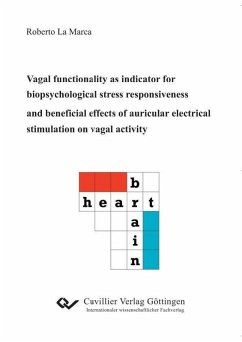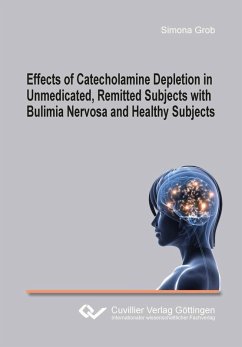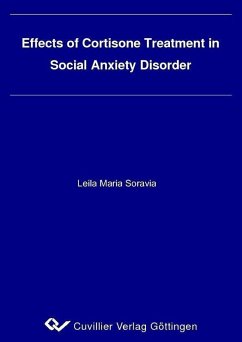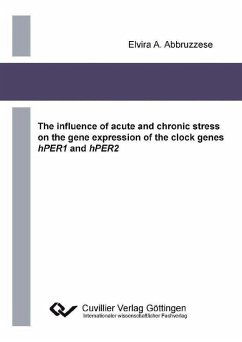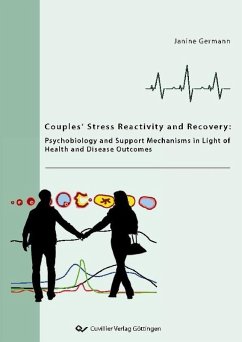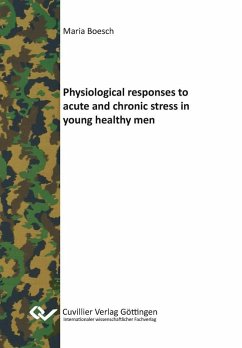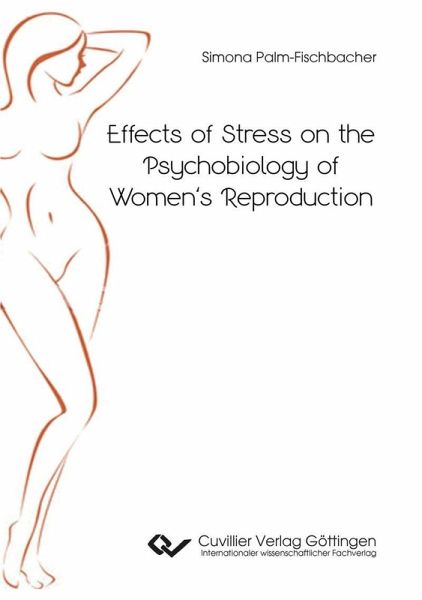
Effects of Stress on the Psychobiology of Women‘s Reproduction (eBook, PDF)
Sofort per Download lieferbar
Statt: 28,36 €**
20,90 €
inkl. MwSt. und vom Verlag festgesetzt.
**Preis der gedruckten Ausgabe (Broschiertes Buch)
Alle Infos zum eBook verschenkenWeitere Ausgaben:

PAYBACK Punkte
0 °P sammeln!
The present thesis aimed to investigate the effects of stress on women’s reproductive system and mating behavior. For this purpose, an online study about the association between chronic psychosocial stress, potential protective factors such as dispositional resilience, and menstrual cycle regularity was conducted. The results suggest that chronic stress and resilience have a main effect on menstrual cycle regularity. Additionally, women with greater resilience have a reduced risk of irregular menstrual cycles in the face of low to moderate chronic stress; however, this association chang...
The present thesis aimed to investigate the effects of stress on women’s reproductive system and mating behavior. For this purpose, an online study about the association between chronic psychosocial stress, potential protective factors such as dispositional resilience, and menstrual cycle regularity was conducted. The results suggest that chronic stress and resilience have a main effect on menstrual cycle regularity. Additionally, women with greater resilience have a reduced risk of irregular menstrual cycles in the face of low to moderate chronic stress; however, this association changes at the highest level of chronic stress. Furthermore, in an experimental study, women’s mate-choice behaviors, such as masculinity preference, were assessed, with a particular emphasis on hormonal dynamics throughout the menstrual cycle in interaction with stress induction. Women were found to prefer more masculine men before ovulation than in the mid-luteal phase, whereby estradiol seemed to predict masculinity preference. In addition, compared to a control condition, women exposed to a stressful condition experienced a decrease in male masculinity preference.
Dieser Download kann aus rechtlichen Gründen nur mit Rechnungsadresse in A, B, BG, CY, CZ, D, DK, EW, E, FIN, F, GR, HR, H, IRL, I, LT, L, LR, M, NL, PL, P, R, S, SLO, SK ausgeliefert werden.





